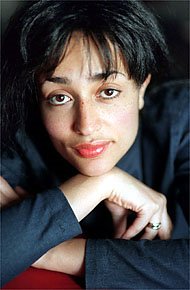
Asks Lev Grossman in this Time magazine article.
" David Foster Wallace is 44 years old. Jonathan Franzen is 46. Jonathan Lethem, 42. Michael Chabon, 43. I point that out not to be rude--although I admit it is kind of rude--but because those are the writers that people--people who think about such things, anyway--think of as the young American novelists. And even by the notoriously elastic standards of the literary world--the only place on earth where you can still be a wunderkind at the age of 30--42 is not especially youthful. Wallace, Franzen, Lethem and Chabon may be great writers, but one thing they are not is young writers."
He goes on and then concludes:
"That probably gets at some of the truth of it. The world has changed, and the novel has changed with it. Fictional characters just can't get away with being generically white and middle class and male anymore, the way they used to. Not and still be the object of mass identification and adoration the way the Voice has traditionally been. We just don't think about people that way anymore: we're interested in the specifics of their racial and ethnic and historical circumstances, where they came from and who made them that way. If the novelists under 40 have a shared preoccupation, it is--to put it as dryly as possible--immigration. They write about characters who cross borders, from East to West, from Old World to New and back again, and the many and varied tolls they pay along the way. Their shared project, to the extent that they have one, is the revision of the good old American immigrant narrative, bringing it up to code with the realities of our multicultural, transcontinental, hyphenated identities and our globalized, displaced, deracinated lives. It's a literature of multiplicity and diversity, not one of unanimity, and it makes the idea of a unifying voice of a generation seem rather quaint and 20th century. I may love and empathize with the transplanted Bengalis who populate Lahiri's fiction, or Shteyngart's semi-Americanized Russians, or Foer's uprooted Old Worlders or Smith's international extended families. But I would never be so foolish as to mistake any of them for myself."
That's an interesting thought there. Reading experience, in this age of TV and rich media and what not, is not the same any more.
But to think of India in this context, thankfully there are a number of 30 or below 30 something novelists--whether they represent the voice of this generation is a differet matter.
Interestingly, in a poll in the same issue, to see the emergence of a classic novel written by the recent crop of writers, Zadie Smith and Jhumpa Lahiri are on the tops (at least as of now).

No comments:
Post a Comment